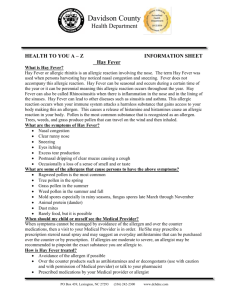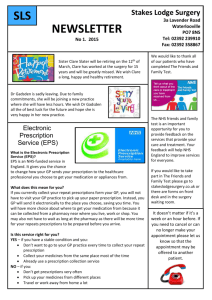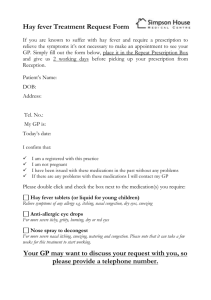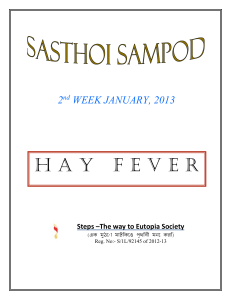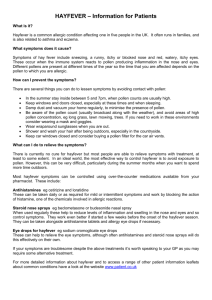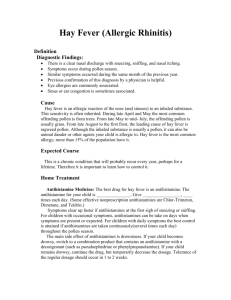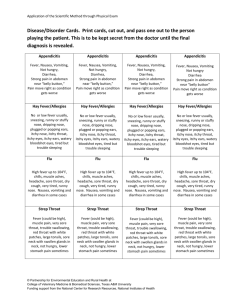What is hay fever
advertisement
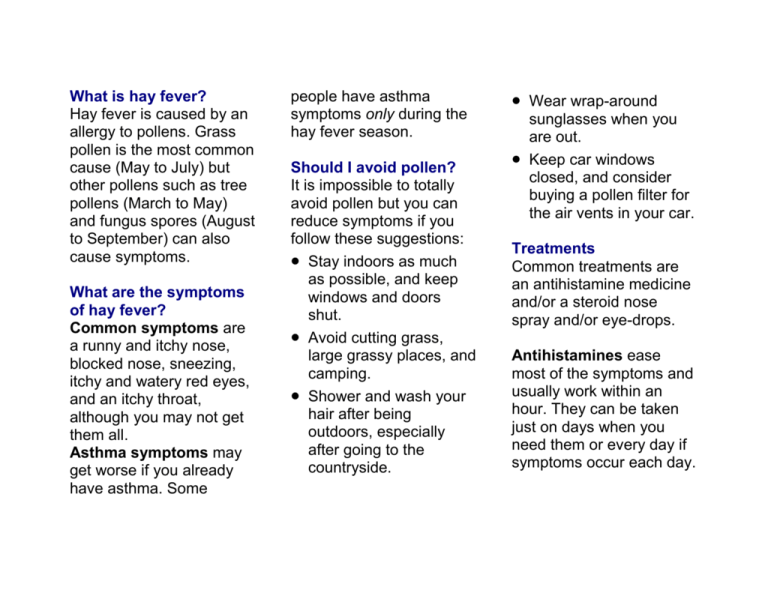
What is hay fever? Hay fever is caused by an allergy to pollens. Grass pollen is the most common cause (May to July) but other pollens such as tree pollens (March to May) and fungus spores (August to September) can also cause symptoms. What are the symptoms of hay fever? Common symptoms are a runny and itchy nose, blocked nose, sneezing, itchy and watery red eyes, and an itchy throat, although you may not get them all. Asthma symptoms may get worse if you already have asthma. Some people have asthma symptoms only during the hay fever season. Should I avoid pollen? It is impossible to totally avoid pollen but you can reduce symptoms if you follow these suggestions: Stay indoors as much as possible, and keep windows and doors shut. Avoid cutting grass, large grassy places, and camping. Shower and wash your hair after being outdoors, especially after going to the countryside. Wear wrap-around sunglasses when you are out. Keep car windows closed, and consider buying a pollen filter for the air vents in your car. Treatments Common treatments are an antihistamine medicine and/or a steroid nose spray and/or eye-drops. Antihistamines ease most of the symptoms and usually work within an hour. They can be taken just on days when you need them or every day if symptoms occur each day. Steroid nose sprays clear nose symptoms and can also ease eye symptoms. It takes a few days to build up to full effect. So start taking it a week before the hay fever season begins if you know that you usually get symptoms A steroid nose spray tends to be the most effective treatment when symptoms are more severe and can be used in combination with antihistamines when symptoms are really bad. Eye-drops are useful when the main problem is itchy eyes, but do need to be used every day. Treatments are available from your local pharmacy, via the Care at the Chemist Scheme. If you don’t normally pay for prescriptions, you won’t have to pay for hayfever treatments at the pharmacy. If you have any questions please ask your local pharmacist or speak to your GP. NHS DIRECT LOGO & NUMBER Hayfever Patient Advice Leaflet
